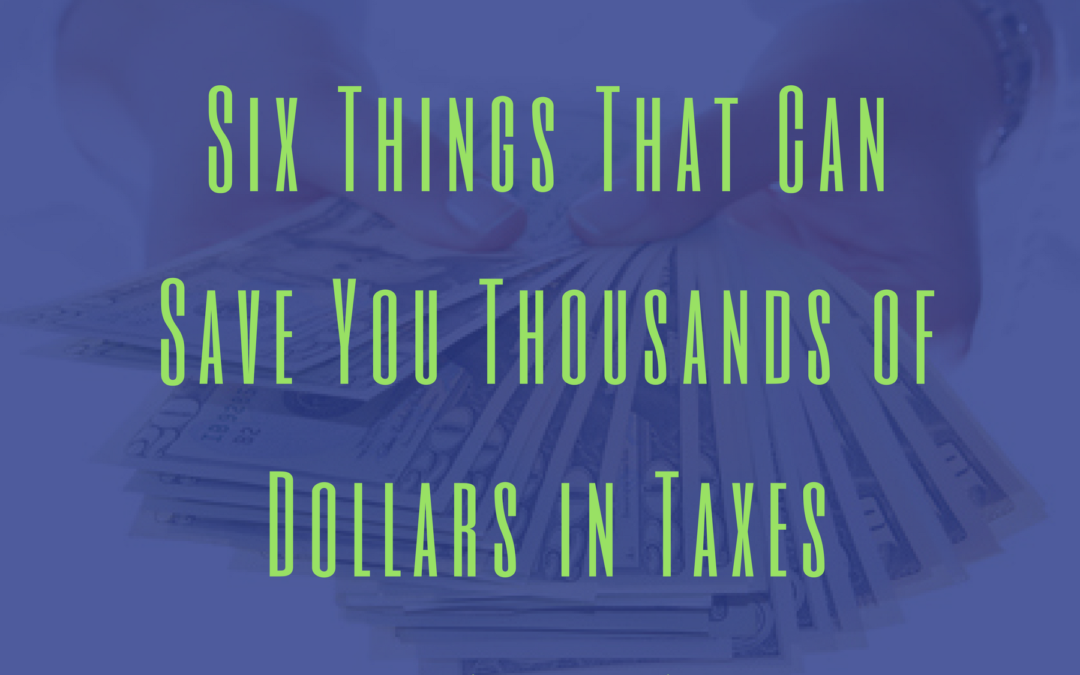
My job is to help my clients grow their business, increase their finances and be empowered in their own life when it comes to money. I’ve worked with thousands of entrepreneurs in their businesses and personal finances to ensure they are making great choices with money and using incredible resources to work smarter, not harder.
There are several important tax deductions that are often overlooked, confusing, abused or even forgotten. Below is a list of these deductions and tips broken down in their simplest form, so that from now on you are educated, confident and asking the right questions!
1. Home office:
This is one that people are always asking me about. There's a misconception about the home office deduction because people think that if they take the deduction then they have to pay tax on the home-office when they sell their house. That has not been the case for many, many years. Now you can have a $250,000 gain on your house for free or $500,000 if you are married. You do have to live in the house for two years for it to qualify, but for most people, they are able to take advantage of this free gain. Another thing to know about the home office deduction is that you can only take it if it is your only office.
2. Mileage:
If you have a home office, most of your miles are deductible, as long as they are part of your business – trips to the bank, meeting with clients, and networking events are all necessary to your business. Miles IQ is the app I use to track my miles – much easier than manually tracking!
3. Travel:
Many people come into my office asking if they can go to Disneyland or Mexico, have a meeting or two and write off the entire trip. Unfortunately, the IRS got rid of that a long, long time ago. There are very strict rules on this issue, and it is not something to mess around with. So, be careful when you're traveling and be discerning about what is actually business and what is not.
4. Image:
You cannot under any circumstance write off clothes unless they are clothes that cannot normally be worn out in public. A classic example is the scrubs that a doctor wears – they are deductible. TV reporters are required to dress a certain way and they are allowed to write off their makeup and their clothes. If you are producing professional videos for your website or for marketing purposes, then you too can write off the makeup and hair, but not the dress you wore for the video AND to work that day.
5. Retirement Plans:
Most entrepreneurs are unaware of the many tax-deductible retirement plans available for small and large businesses. Depending on your personal situation, options include SEP Plans, Simple IRA Plans, Pension Plans and Defined Benefit Plans. Consult your CPA and/or your financial advisor for more information.
6. Real Estate:
A lot of entrepreneurs love to have some type of real estate, whether it is a rental property or flipping a property for profit. It is very critical if you are a real estate investor to understand if you are an active or passive investor. If you are an active investor that means that you are a real estate agent and that you were putting in 750 hours per year on large property. Otherwise you are passive and if you are passive that means that you are simply not actively involved because you're overseeing the property and collecting rents but you're not putting in the hours and you're not a professional in real estate. If you have a gain on your property, you have to pay tax on it but if you have a loss you are not allowed to take that loss. Instead you have to carry that loss forward to the next tax year, and offset it against future gains. This is something that needs to be put into your tax return in the exact correct place so that you do not lose that deduction, and it’s easy to make a mistake here. If you do have real estate that is considered passive and you have losses that you cannot take, then the good news is that if you have other passive properties that are profitable you can take the ones that are losses against the ones that were gains.
Holly Signorelli a Wealth Strategist and Author of Do You Know Where your Money Is?®. Holly has worked with thousands of entrepreneurs from startup to multimillionaires And is known as The Money Therapist® in the media, and is frequently on the news and nationally syndicated shows as a finance expert. www.themoneytherapist.com

What about my “Fun Money”?
What do you do with the income you make from your side hustle, or the cash you earn from your service based job/biz? Often times that cash or side money is what becomes our “fun money” and if you every have found yourself saying that – this article is for you! Learn how to have your fun AND start to make rapid progress towards your financial goals all at the same time!
How to Know When You Can Leave Your 9-5
How do you know when it's “OK” to leave your J.O.B.? How do you know how much you need to be making in order to keep everything afloat? How can you shift your perspective about the job you currently despise and change it to once of gratitude and appreciation? In this article I share all of this and more!
Your J.O.B. is Your #1 Ally!
Why your J.O.B. is not the thing holding you back from successfully launching your business. You are.
Learn how your job is actually your greatest ally and can be the REASON (not the excuse) that you can successfully start your business.
Things to Consider Prior to Pursuing Debt Settlement
Up to your head in debt and don't know what to do? Debt settlement may seem like an appealing option, but before you make the plunge, here are a few things you want to know.









